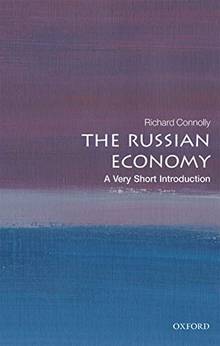The Russian Economy: A Very Short Introduction
Connolly, Richard
Éditeur : OXFORD UNIVERSITY PRESS
ISBN papier: 9780198848905
Parution : 2020
Code produit : 1451007
Catégorisation :
Livres /
Gestion /
Économie /
Économie internationale
Formats disponibles
| Format | Qté. disp. | Prix* | Commander |
|---|---|---|---|
| Livre papier | En rupture de stock** |
Prix membre : 10,76 $ Prix non-membre : 11,95 $ |
*Les prix sont en dollars canadien. Taxes et frais de livraison en sus.
**Ce produits est en rupture de stock mais sera expédié dès qu'ils sera disponible.
Description
The Russian Economy: A Very Short Introduction looks at the historical roots of an economy dominated by the state and shaped by a need for security. The Soviet Union’s centrally planned economic system enabled industrialization, urbanization, and military success, but at what human cost? The transition to a market-based system in the late 20th century was difficult, and only partially successful. From the millennium onwards, Vladimir Putin’s economic policy emerged as a hybrid of state- and market-controlled approaches. Russia has been criticized for overdependence on natural resources and armaments. However, if some world powers can combine state control and a profile in the global markets, why not Russia?The Russian Economy: A Very Short Introduction looks at the historical roots of an economy dominated by the state and shaped by a need for security. The Soviet Union’s centrally planned economic system enabled industrialization, urbanization, and military success, but at what human cost? The transition to a market-based system in the late 20th century was difficult, and only partially successful. From the millennium onwards, Vladimir Putin’s economic policy emerged as a hybrid of state- and market-controlled approaches. Russia has been criticized for overdependence on natural resources and armaments. However, if some world powers can combine state control and a profile in the global markets, why not Russia?























